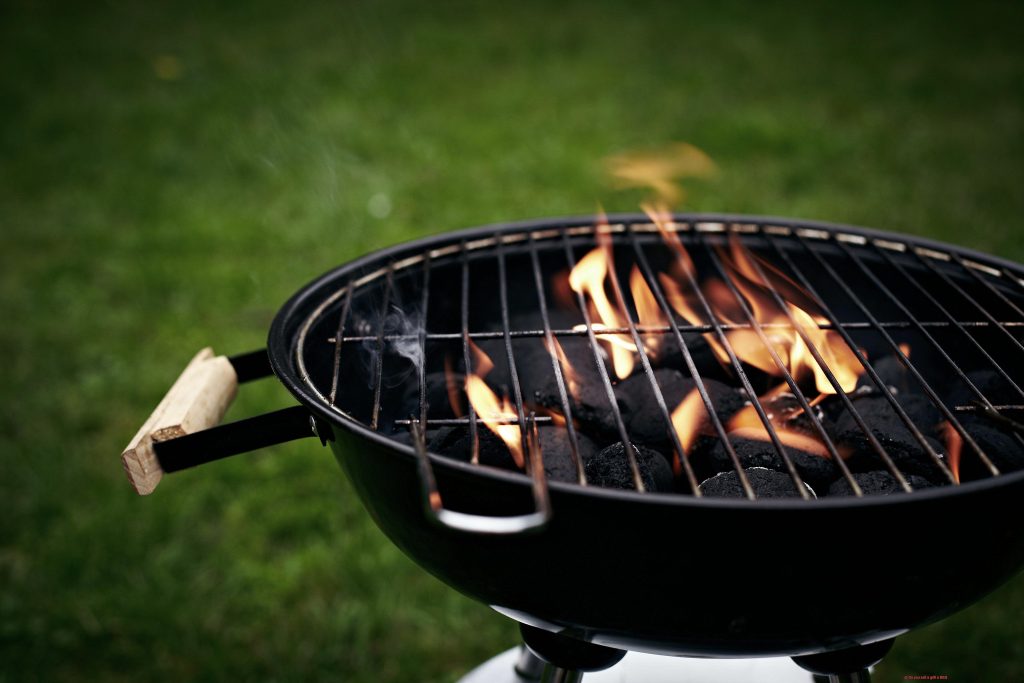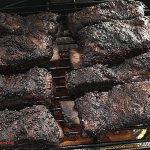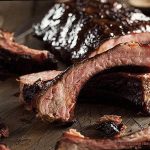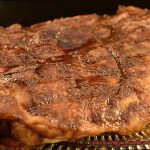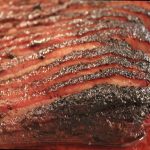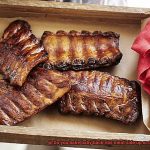Ah, summer. The time of year when the sun is shining, the birds are singing, and the smell of sizzling meat fills the air. For many people, there’s nothing better than firing up the grill and cooking up a storm with friends and family. But amidst all this excitement, there’s one question that never seems to go away: do you call a grill a BBQ?
It might seem like just a small detail, but for some people, it’s a big deal. Some folks believe that “BBQ” should only be used to describe slow-cooked meats prepared in a smoker. Others say that any kind of outdoor cooking can be called BBQ, regardless of what equipment you’re using.
So who’s right? In this blog post, we’ll dive deep into the origins of the term “BBQ”, explore how it’s used today, and examine both sides of this debate. We’ll also take a look at how cultural and regional differences influence our ideas about grilling and BBQing.
And if that wasn’t enough to whet your appetite, we’ll also explore some of the most popular styles of BBQ across America – from tangy Carolina-style pulled pork to smoky Texas brisket. So whether you’re a seasoned grill master or just someone who enjoys flipping burgers on the weekends, get ready to sink your teeth into this juicy topic: do you call a grill a BBQ?
Contents
What is a Grill?
A grill is no ordinary kitchen appliance. It’s a symbol of summertime fun, outdoor gatherings, and mouth-watering meals. This versatile cooking device uses direct heat to cook food on a metal grate placed above the heat source. Grills come in different shapes and sizes, ranging from small portable models to large, permanent installations.
There are three popular types of grills to choose from: gas grills, charcoal grills, and electric grills. Gas grills are perfect for those who prioritize convenience and speed. They run on propane or natural gas, heat up quickly, and allow users to control the temperature with precision. Charcoal grills offer a classic smoky flavor that many people prefer. While they take longer to heat up and require more maintenance than gas grills, they are often considered more authentic. Electric grills are a newer option that uses electricity to heat up the grill surface. They’re easy to clean and maintain and ideal for indoor use or areas where open flames are not allowed.
When it comes to grilling, your options are only limited by your imagination. You can cook anything from juicy burgers and steaks to fresh seafood and vegetables. Grilling also allows you to experiment with different flavors and cooking techniques.
While using a grill can be fun, safety should always be a top priority. Always make sure the grill is clean and free from any debris before use and keep children and pets away from the grill while it’s hot.
What is BBQ?
BBQ – just the mention of it can make your mouth water. As an expert on the subject, let me take you on a journey to explore this delicious cooking method.
For starters, BBQ is short for “barbecue,” which involves cooking meat, fish, or vegetables using smoke from burning wood or charcoal. This style of cooking has been around for centuries and can be traced back to Caribbean tribes who used smoke to cook their food.
Today, BBQ is a beloved way of cooking in many parts of the world, particularly the United States. It’s often associated with outdoor gatherings and social events where people gather around a grill or smoker to cook and enjoy food together.
But not all BBQ is created equal. There are different types of BBQ that have their unique flavors and techniques. Texas-style BBQ is known for its use of beef and dry rubs, while Carolina-style BBQ uses vinegar-based sauces and slow-cooked pork. Memphis-style BBQ, on the other hand, is all about the dry rubs and slow-cooking techniques.
One thing that sets BBQ apart from other cooking methods is the low and slow cooking temperatures. This allows the meat to cook slowly and absorb the smoky flavor from the wood or charcoal. And let’s not forget about the rubs and sauces – they’re a crucial part of any good BBQ dish.
The Difference between a Grill and BBQ
Before you fire up the grill or start slow-cooking with BBQ, it’s important to understand the key differences between these two methods.
Let’s start with equipment. A grill is typically a quick and easy appliance that uses direct heat from a gas or charcoal flame to cook food at high temperatures. It usually has a grate that sits directly above the flame, allowing for fast searing and cooking.
On the other hand, BBQ (short for “barbecue”) involves using smoke from wood or charcoal to cook food at low temperatures for an extended period of time. BBQ equipment often includes a smoker box or attachment that allows for slow cooking and smoking of meats and other foods.
When it comes to food, grilling is often associated with quick-cooking items such as burgers, hot dogs, and vegetables. BBQ, on the other hand, is typically reserved for tougher cuts of meat like brisket, ribs, and pulled pork that benefit from long, slow cooking.
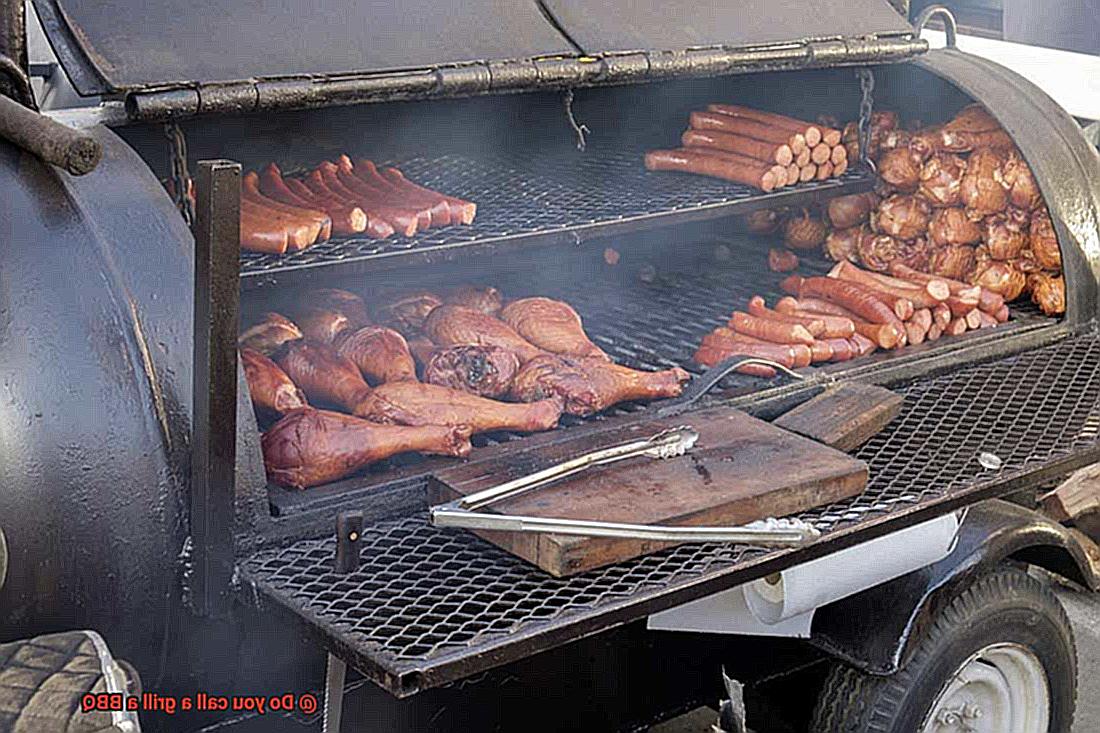
But wait, there’s more. In some regions of the country, “BBQ” specifically refers to a style of sauce or seasoning used on grilled or smoked meats rather than the cooking method itself. So if you’re invited over for a BBQ, make sure to clarify what your hosts mean.
Regional Differences in Terminology
When it comes to outdoor cooking, regional differences in terminology can cause quite a stir. The “grill versus BBQ” debate is one such example, with different regions of the United States having unique ways of referring to these cooking methods. Let’s take a closer look at this fascinating topic and explore the colorful world of regional differences in terminology for outdoor cooking.
One thing is for sure – Texans and Kansas City residents know their BBQ. In these regions, BBQ refers specifically to slow-cooked meat that has been smoked over wood or charcoal for several hours. Meanwhile, a grill is reserved for quick-cooking items like burgers and hot dogs. But don’t think for a second that these folks lack in grilling skills – they know how to cook up a mean burger.
In other areas of the country, such as the Northeast and Midwest, people use the terms grill and BBQ more interchangeably. Here, the term BBQ might refer to any outdoor cooking that involves meat and fire. While some may argue that this isn’t technically accurate, who cares as long as it tastes delicious?
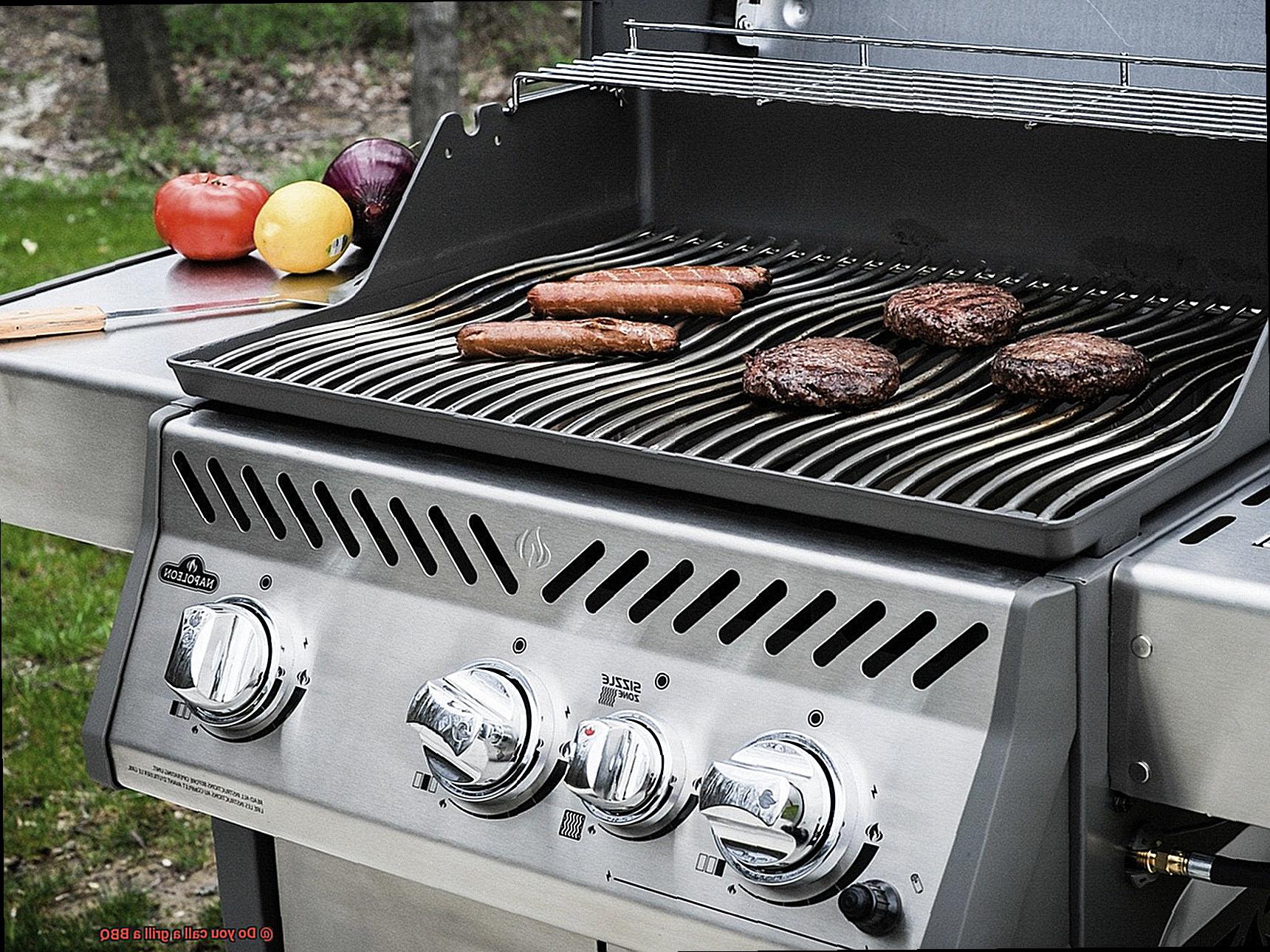
But wait, there’s more. Even within certain states, there are variations in terminology. Take North Carolina, for instance. In some parts of the state, BBQ means pork that has been slow-cooked over hickory wood and served with a vinegar-based sauce. In other areas, BBQ might refer to grilled chicken or beef. It just goes to show that there are many ways to talk about outdoor cooking, even within a single state.
So what’s the bottom line? Ultimately, it all comes down to personal preference. While there may be general trends in certain areas, everyone has their unique way of referring to grilling and BBQ. Whether you’re a die-hard Texan who only eats slow-smoked brisket or a Midwesterner who loves grilling up juicy burgers, what matters most is enjoying your food and sharing it with loved ones. After all, isn’t that what cooking is all about?
Social Gatherings and Barbecues
Before you fire up the grill, it’s important to understand the difference between grilling and barbecuing. While these terms are often used interchangeably, they refer to two different cooking methods. Grilling involves cooking food quickly over an open flame, while BBQ refers to the slow-cooking of meat over low heat for an extended period of time.
Now that we’ve cleared up any confusion about terminology, let’s focus on safety measures when using grills at social gatherings and barbecues. Safety should always be a top priority to ensure everyone has a fun and safe time. Here are some key safety tips to keep in mind:
- Always supervise the grill while cooking: Never leave the grill unattended, especially when there are children or pets around.
- Keep children and pets away from the grill area: A hot grill can be dangerous for curious little ones who might accidentally touch it.
- Use long-handled grilling tools to avoid burns: Keep your hands away from the heat and use long-handled tools to flip your food.
- Never add lighter fluid to an already lit fire: This can cause a dangerous flare-up and increase the risk of injury.
- Keep the grill away from flammable materials: Ensure that the grill is stable and at least ten feet away from any flammable materials such as trees or dry leaves.
- Clean the grease tray regularly to prevent flare-ups: The grease tray can accumulate grease and oil, which can cause a fire. Clean it regularly to prevent flare-ups.
- Allow the coals to cool off completely before disposing of them: Always wait until the coals are cool before disposing of them.
By following these safety measures, you can ensure that everyone has a great time at your social gathering or barbecue without any accidents or injuries.
Choosing the Right Equipment for Outdoor Cooking
There’s nothing quite like cooking and eating outdoors. Whether you’re planning a backyard BBQ with friends or packing up for a weekend camping trip, having the right equipment is crucial. As an expert in outdoor cooking, I’m here to provide some tips on choosing the right equipment for your needs.
First, think about what kind of outdoor cooking you plan on doing. Are you a fan of grilling burgers and hot dogs for a small group, or do you prefer smoking larger cuts of meat for a crowd? Your specific needs will dictate the type of equipment that will work best for you.
Once you have an idea of what you want to cook, consider your budget and how often you’ll be using the equipment. Investing in high-end equipment may not make sense if you only intend to use it occasionally. However, if outdoor cooking is going to be a regular activity for you, it’s worth splurging on quality equipment that will last.
Now let’s talk grills. Some people use “grill” and “BBQ” interchangeably, but others argue that BBQ specifically refers to slow-cooked meats over wood or charcoal. Regardless of terminology, choosing the right grill is crucial. Charcoal grills provide that beloved smoky flavor but can be time-consuming and difficult to use. Gas grills are convenient and easy to use but lack that distinct smoky flavor.
In addition to considering the type of cooking you plan on doing and your budget, other factors to consider include size (how much food do you need to cook at once?), portability (will you be taking the equipment with you on camping trips?), and accessories (do you need a rotisserie or side burner?). Taking all these factors into account will help ensure that you choose the right equipment for your outdoor cooking adventures.
Slow-Cooking Meat Over Wood or Charcoal
Look no further than slow-cooking meat over wood or charcoal. This popular technique involves cooking meat at a low temperature for an extended period, resulting in tender, smoky, and flavorful meat that is sure to impress.
It’s important to note that slow-cooking meat over wood or charcoal is considered a BBQ technique rather than grilling. Grilling involves high heat for a short amount of time, while BBQ involves low heat for a longer period. So, get ready to settle in for a delicious, slow-cooked meal.
To achieve the desired flavor, it’s crucial to choose the right type of wood or charcoal. Hardwoods like oak, hickory, and mesquite are popular choices because they impart a strong smoky flavor to the meat. Charcoal is also commonly used because it burns at a lower temperature than propane or natural gas, making it easier to maintain a low cooking temperature over an extended period.
Setting up the grill properly is key to successful slow-cooking. The two-zone fire method is recommended, with one side set up for direct heat and the other side set up for indirect heat. The meat should be placed on the indirect side of the grill to slowly cook through without burning.
Slow-cooking is ideal for larger cuts of meat such as brisket, ribs, and pork shoulders. Seasoning your meat well before placing it on the grill is crucial. Use a dry rub or marinade to add extra flavor.
Once your meat is on the grill, it’s time to sit back and relax. Slow-cooking can take several hours depending on the size of your cut of meat. Keeping the grill temperature low and steady throughout the cooking process is important. Adding more wood or charcoal as needed will help maintain the temperature.
After several hours of slow-cooking, your meat should be tender, juicy, and infused with smoky flavors. Letting your meat rest for a few minutes before slicing allows the juices to redistribute. Serve with your favorite sides and enjoy.
Advantages of Grilling and BBQ-ing
As an expert in the field, I am here to highlight some of the advantages of these popular cooking methods.
Let’s start with grilling. With direct heat from the grill, food can be cooked in a matter of minutes, making it perfect for busy weeknights or when you want to whip up a quick meal. And not only is it fast, but grilling also allows for healthier cooking as excess fat drips off the meat, making for leaner and more nutritious meals. Plus, who can resist that unbeatable charred flavor?
Now let’s talk about BBQ-ing. This slow-cooking method is a game-changer for tougher cuts of meat that need extra time to break down their connective tissues and become tender and juicy. The low and slow cooking process over indirect heat allows flavors to penetrate the meat, resulting in mouth-watering feasts that will leave your guests begging for more. And let’s not forget the social aspect of BBQ-ing – it’s the perfect excuse to gather outside with loved ones and create unforgettable memories.
But wait, there’s more. Both grilling and BBQ-ing offer versatility in cooking. From meats and veggies to fruits and desserts, there is no limit to what you can cook on a grill or smoker. And let’s be honest – food just tastes better when it’s cooked outside.
3QyJGpYqrVY” >
Conclusion
In conclusion, the age-old debate of whether to call a grill a BBQ is more than just a matter of semantics. It’s a reflection of cultural and regional differences in how we approach outdoor cooking. While some people reserve the term “BBQ” for slow-cooked meats prepared in smokers, others use it more broadly to describe any kind of outdoor cooking. Regardless of what you call it, grilling and BBQ-ing are both beloved methods of cooking that offer unique advantages.
Grilling is perfect for quick-cooking items like burgers and hot dogs and allows for healthier cooking with excess fat dripping off the meat. On the other hand, BBQ-ing involves slow-cooking tougher cuts of meat over indirect heat, resulting in mouth-watering feasts that are perfect for social gatherings with loved ones.
However, when it comes to enjoying these delicious meals safely, understanding the differences between grilling and BBQ-ing is crucial. Always supervise the grill while cooking, keep children and pets away from the grill area, use long-handled grilling tools to avoid burns, never add lighter fluid to an already lit fire, keep the grill away from flammable materials, clean the grease tray regularly to prevent flare-ups, and allow coals to cool off completely before disposing of them.
Whether you’re a seasoned grill master or simply someone who enjoys flipping burgers on weekends, what matters most is savoring your food and sharing it with loved ones.

